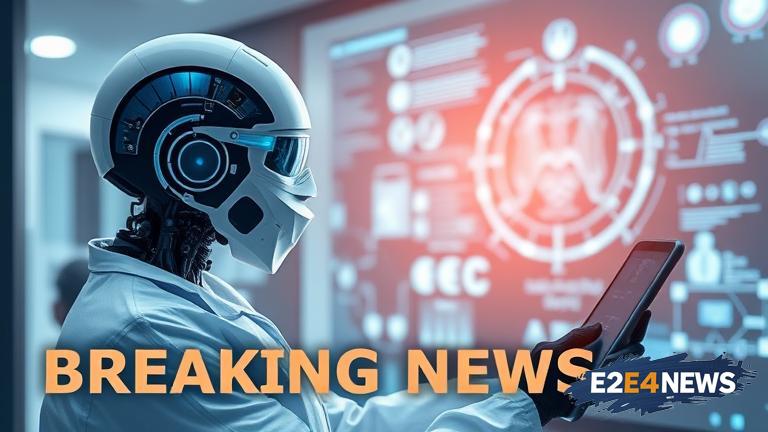The integration of artificial intelligence (AI) in healthcare has been a game-changer for the industry. With its ability to analyze vast amounts of data, AI algorithms can identify patterns and make predictions, enabling healthcare professionals to make more accurate diagnoses and develop personalized treatment plans. One of the most significant applications of AI in healthcare is in the field of medical imaging. AI-powered algorithms can analyze images such as X-rays and MRIs, helping doctors to detect abnormalities and diagnose conditions more quickly and accurately. Additionally, AI can help to streamline clinical workflows, reducing administrative burdens and allowing healthcare professionals to focus on patient care. The use of AI in healthcare also has the potential to improve patient outcomes, particularly in the treatment of chronic diseases such as diabetes and heart disease. By analyzing large datasets, AI algorithms can identify high-risk patients and provide personalized recommendations for lifestyle changes and treatment. Furthermore, AI-powered chatbots and virtual assistants are being used to provide patients with personalized support and guidance, helping to improve adherence to treatment plans and reduce hospital readmissions. The development of AI-powered robots is also transforming the field of surgery, enabling surgeons to perform complex procedures with greater precision and accuracy. Moreover, AI can help to improve the accuracy of medical billing and insurance claims, reducing errors and streamlining the reimbursement process. The adoption of AI in healthcare is not without its challenges, however. One of the main concerns is the potential for AI algorithms to perpetuate existing biases and disparities in healthcare. To address this issue, it is essential to develop AI algorithms that are transparent, explainable, and fair. Another challenge is the need for standardized data formats and interoperability standards, to enable the seamless exchange of data between different healthcare systems and providers. Despite these challenges, the potential benefits of AI in healthcare are undeniable. As the technology continues to evolve, we can expect to see significant improvements in patient outcomes, clinical efficiency, and healthcare costs. The use of AI in healthcare is also likely to create new job opportunities and stimulate economic growth. In conclusion, the integration of AI in healthcare is a rapidly evolving field, with the potential to transform the industry and improve patient outcomes. As the technology continues to advance, it is essential to address the challenges and limitations of AI in healthcare, to ensure that its benefits are equitably distributed and that patients receive the best possible care. The future of healthcare is likely to be shaped by the development of AI, and it is essential to stay up-to-date with the latest advancements and innovations in this field. With its ability to analyze vast amounts of data, AI has the potential to revolutionize the healthcare industry, improving patient outcomes and streamlining medical processes. The adoption of AI in healthcare is a significant step forward, and it is likely to have a major impact on the industry in the years to come. As AI technology continues to evolve, we can expect to see significant improvements in healthcare, from diagnosis and treatment to patient outcomes and clinical efficiency. The integration of AI in healthcare is a complex and multifaceted issue, and it is essential to consider the potential benefits and challenges of this technology. By doing so, we can ensure that AI is used to improve patient outcomes, streamline clinical workflows, and reduce healthcare costs. The use of AI in healthcare is a rapidly evolving field, and it is essential to stay up-to-date with the latest advancements and innovations. With its potential to transform the industry, AI is likely to play a major role in shaping the future of healthcare.
